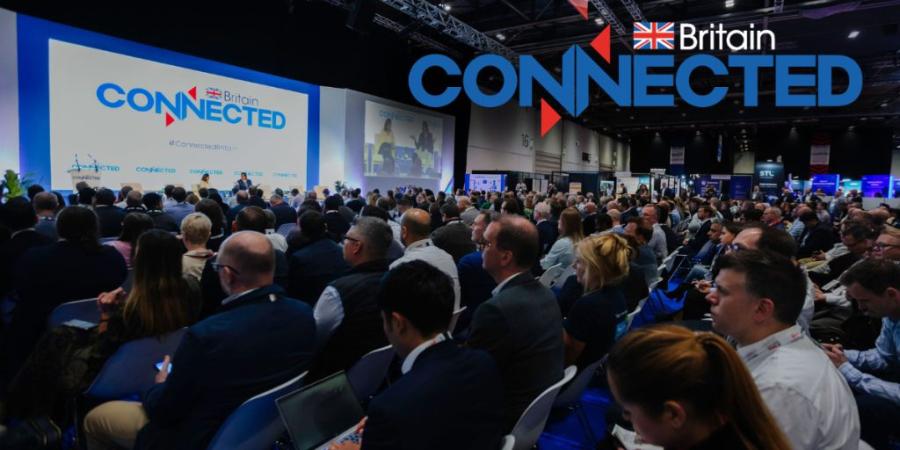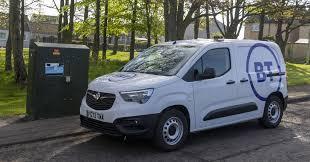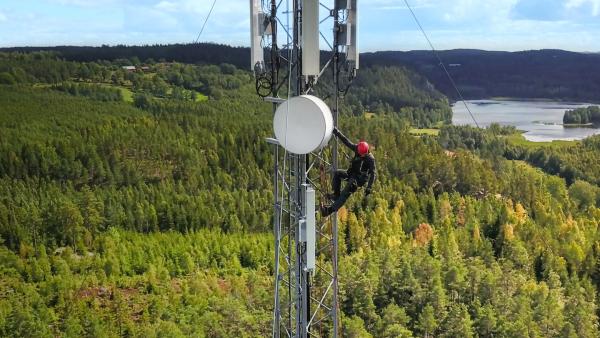
Connected Britain is the UK’s leading event for next-generation broadband and connectivity. On September 24th and 25th, the conference brought together over 8,000 leaders from across telecoms, government, enterprise, and technology to provide a unique platform for shaping the future of the UK’s digital infrastructure.
Featuring contributions from local authorities, industry leaders, and policy experts, this year’s agenda included gigabit broadband, fibre rollout, 5G, smart places, and digital inclusion, along with other topics — attendees heard from over 350 exhibitors, and were given access to significant networking opportunities.
The two-day convention included insights from Dritan Kaleshi, Lead for Future Telecoms Capability, UKTIN; Dimitra Simeonidou, Lead for Research Capability, UKTIN; Jonathan Eaton, Chair, Transport & Logistics Working Group, UKTIN; Simon Saunders, Chair, Wireless Networking Technologies Group, UKTIN; Maria Lema, Advisory Board Member, UKTIN; Robert Franks, Board Member, UKTIN & Managing Director, WM5G; Natalie Black CBE, Group Director for Networks & Communications, Ofcom; and many more. Enjoy our highlights below.
Scaling Digital Infrastructure
Experts talked about the best practices that have emerged from regional 5G innovation projects, and how they can be replicated, while highlighting that effective public-private collaboration can unlock new opportunities to drive connectivity in underserved regions and the funding opportunities that exist for local authorities
Barry McNally, the lead consultant for Glasgow’s 5GIR programme, said: “Glasgow City Region is a big area — a third of Scotland’s economy and population. It’s made up of eight local authorities, and we have been focusing on social housing and social care. The current ways of working are unsustainable. There is a housing crisis, and we operate landlord processes in a very reactive way, which is expensive. But technology — such as IoT sensors — can identify problems. The issue is that everyone wants it, but no one knows how to pay for it. The DSIT funding has been amazing, but we could do with more. We are trying to build a pipeline for funding now, yet there are massive budgeting pressures for local authorities.”
Julia McMurdie, Digital Renewal Manager at North Ayrshire Council, added, “The technology exists, but now it’s about understanding which technology is right. Once we know this, we can work through the business use cases. We recently took a company through a process, and they just won an innovation award — we are also currently working with a digital ambassador programme. It’s all about building an ecosystem!”
McNally continued: “The local authority is not set up to spend money quickly on stuff they don’t know about. Glasgow is a very experienced city, but you can’t cut through barriers with procurement or legal protection. Our programme is about reaching a business case, which takes time and money. What we have realised is that, yes, we can bring the tech, but there’s a lot more to think about in terms of changing the management of organisations. For example, introducing subscriptions is very new for local authorities, so if you’re planning to bring that forward as a solution, you need to think about how you can incorporate that into your budget.”
Naomi Hutchinson, Chief Innovation and Growth Officer, Sunderland City Council, said: “We’re still seeing the curve from the 5G perspective, but the use cases that are coming through probably aren’t strong enough. Businesses are feeling the pinch, and they consider 5G a risk. In Sunderland, our leadership had a risk appetite. There was a business case to begin with. When we speak to the manufacturing sector, such as big firms like Nissan, they are interested. But the supply chain is made up of family-run businesses that consider Wi-Fi impressive. People think, if it ain’t broke… don’t fix it. As for funding, DSIT has been brilliant, but we now need to disseminate our work and learnings.”
The Circular Economy
The session highlighted that tackling e-waste and supporting the circular economy can work hand-in-hand with measures to tackle digital inclusion, exploring how public, private and third-sector partnerships are essential to providing models that drive inclusivity and sustainability practices
Nicola Green, Chief Communications and Corporate Affairs Officer at Virgin Media O2, said: “We have been delivering digital inclusion programmes and also founded the National Data Bank, distributing data packages. We take digital inclusion and sustainability very seriously — everybody should.”
Emily Carr, Policy Advisor at Green Alliance, continued: “Digital inclusion might not seem like a topic we would cover, but there are loads of technological devices that could be used. There are so many people out there with devices. Digital inclusion and the circular economy are connected, and we need to work together on this. A big part of this is sharing information. We did some research and spoke to people on the ground, and lots of themes came up. Where are the gaps where policy needs to get stuck in?”
Laura Waller, Digital Services and Inclusion Lead, Coventry City Council, added, “We work closely with the NHS and believe it’s important that we have a strategy to reduce inequalities. Coventry Council is an enabler in this space. We need digital inclusion. The approach we take is working with partners and engaging with a climate change board. But grant funding is a challenge. There isn’t a centralised funding system, so we are competing together as we move forward, which is difficult. We therefore need to be transparent. There are so few of us in this space, and we need to work together.
Carr explained: “We are broadly very happy with what DSIT has done, and have benefited greatly from ministers getting behind the idea. The recognition of existing work is important, and committing to action that will drive the supply of devices. But these are cross-cutting issues and we need intervention from the whole of government — DEFRA, for example, is falling short. The devices we need are already out there. The devices that get produced each year are astronomical. But they need to go to the right place — everybody should look into donating!”
Diversity and Digital Britain
Speakers considered how tech and telecom organisations can attract and retain diverse talent by including underrepresented groups and moving beyond performative DEI
Surinder Khatter, FTTP Strategy and Transformation, OpenReach, said: “It’s going to take time. Our organisation is predominantly white male engineers. We have been on a journey, but there is more to do. One of the challenges is recruiting women — it’s physical outdoor work. However, we did some research that showed our job adverts weren’t inclusive. They were masculine within the wording, and so we changed that. Around 16 percent of our staff are now women, which is progress. The focus now is on retention. We want an inclusive environment. We have launched a new paternal leave policy, which gives partners the ability to take equal time off.”
Beena Puri, Innovation and Partnerships Lead, Greater Manchester Combined Authority, added, “There are companies that are quitting in terms of diversity and inclusion programmes, especially in the US. I feel like we are going back fifty years. When it comes to retention, it's about culture and progress — specifically, people being heard in the workplace. In Manchester, thankfully, we are seeing a shift in policy for inclusivity and have introduced family-friendly policies. But early in my career, it was difficult. Is there a glass ceiling? When is your time up? There needs to be programmes in place so that women see their value. I am pregnant and was worried that my progression would end here, despite all my achievements and how hard I have worked. It’s about how we are perceived as mothers and carers, and this needs to be addressed.”
Khatter concluded, “I am really proud of our policy changes around sexual harassment. There are incidents where harassment is obvious, but there are also grey areas. We have opened up conversations. It is everyone’s responsibility, and so I’m very pleased that there are so many men in the room today, whereas last year, it was mainly women. There is more we can all be doing.”
The jam-packed two-day event closed with the Connected Britain 2025 Awards. The winners included Connecting Cambridgeshire (Smart Places Award), Coventry City Council (Digital Council of the Year), the Shared Rural Network (Barrier Removal Award), Lightning Fibre (Broadband Provider of the Year), and Three UK (Digital Skills Award).
Click here to register for next year’s event and find out more information.





